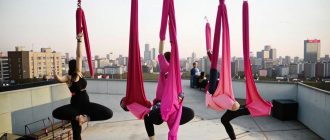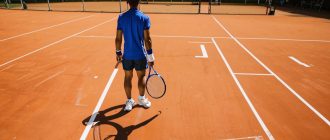From February 22 to 25, the National Squash Center hosted the Russian Squash Championship.
Squash started gaining momentum in Russia not so long ago, but there is already a Children’s Squash Academy in Moscow, whose pupils have the opportunity to go abroad to study under special programs for professional squash players. We talked to Alexey Severinov, the Academy’s director, as well as foreign specialists to find out as much as possible about going abroad.
Nadine Arsenieva, Marketing Director of Squash on Fife squash club in Washington DC: “Squash is actively growing in the US, there are over 200 university teams, also many play for clubs. Half of the players from the university teams are international players. We currently have three coaches at Squash On Fire who came to study in the US from other countries because of the game of squash.”

Alexey Severinov, multiple Russian squash champion, director of the National Squash Center and Children’s Squash Academy in Moscow: “I only dreamed about it – to enter Columbia University for the Sports Management program. True, I had an opportunity, but not in squash, but in big tennis: when I was 16, I passed the college selection in the USA. But another girl was taken instead of me and, as far as I know, she stayed there to live.”
Criteria for selection
Bradley Hindle-Deguara, professional squash player, founder of the BHD Art of Squash and Performance method: “The young athlete must:
- Have a high ranking in the national rankings. Preferably be in the top four nationally and top ten in the European rankings;
- have good results in school. Predominant A’s with a small percentage of B’s;
- have an excellent level of English;
- Be recognized by his coach as a positive and good team player.
And, of course, be teachable.
Alexey Severinov: “The level of play of an applicant for admission to one of the foreign universities (Europe or USA) should correspond to the level of players in the top ten in the European youth ranking.”
Nadine Arsenieva: “The biggest challenge is to maintain a balance between studies and sports. Athletes train four hours a day and also travel to various competitions.”
When and how do you start practicing?
Alexey Severinov: “Usually you start practicing from the age of 6-7, but you can and even should start earlier – from the age of 4. Many professional squash players, such as Frenchman Gregory Gaultier, who retained the title of world number one for many years, started to play squash from the age of four. Such an early introduction to squash gives an opportunity to develop the child’s ability to control the ball and, consequently, to manage the game.
Now, on the basis of the National Squash Center, we have created a Children’s Squash Academy to prepare juniors for admission to educational institutions in Europe and America. We are negotiating with various universities to accept applications from Russian squash players.”
Bradley Hindle-Deguara: “The most important thing is that the child loves playing squash and wants to be the best at it.”
“At the moment we are busy training our student Anastasia Kunitsina, who moved from Vologda to Moscow for the sake of her dream. Her goal is to get into Harvard. And squash gives such an opportunity, as the university has a special program for admitting students who have success in this sport. Now she studies in the 10th grade at a Moscow school, located not far from the club, and devotes all her free time to squash – daily intensive training, performances at Russian and international tournaments. She already has several awards for prizes at European junior ranking competitions. In between tournaments and trainings Nastya is intensively practicing her English. This is our first such experience and we believe in its success.
How does enrollment go?
Bradley Hindle-Deguara: “In the USA, each university has a head squash coach who receives a list of applications from potential students for the next season. The coach, based on what type of squash team their university needs, creates a list of applicants. This process can take up to 12 months, but this is what helps to build a good relationship with the coach of the desired university.”
Alexey Severinov: “The special committee of the selected university, which accepts applications from applicants, needs to send a video of their game and a resume. After that, the commission considers whether the level of squash play suits them. If the answer is positive and the applicant passes to the next stage, they will have to pass a university test. The best candidates are then selected based on their level of play and test results.

If you are lucky enough to become a student of a foreign university, you will have to defend the honor and prestige of the university first of all. You will be playing for the university team in university squash competitions, which are regularly held in countries where squash has a rich history. To do this, you need to train hard, keep to your schedule, don’t skip classes and be disciplined. In short, be a real fan of what you do.”
How do you achieve what you want?
Bradley Hindle-Deguara offers 7 tips to improve your chances of getting an overseas education through squash:
- start training your child with a good coach (no later than age 9);
- participate in as many tournaments as the child can handle. I suggest 15-20 tournaments a year;
- work for results, but have fun in training;
- participate in foreign tournaments and send your child to foreign squash camps – this way he/she will get experience and communicate with other kids;
- doing well in school is also important;
- learn English – by the end of school your child should be able to speak it;
- follow the process!






